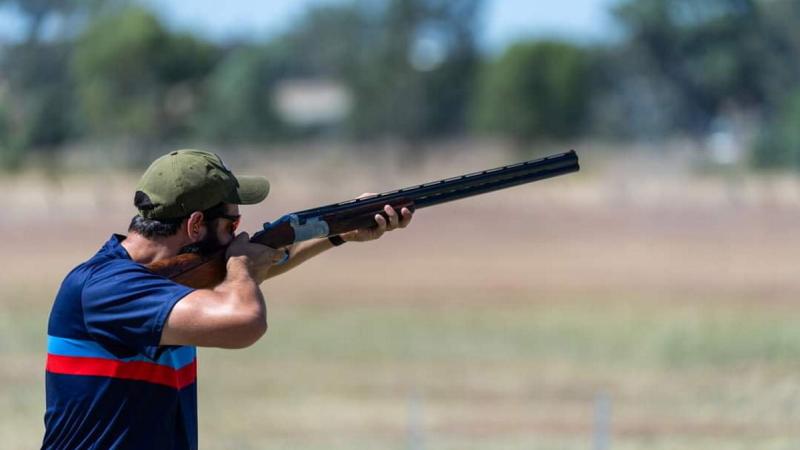The Chamber of Minerals and Energy of WA (CME) and its member companies continue to review the recommendations from the Parliamentary Inquiry Into Sexual Harassment Of Women In the FIFO Mining Industry, with an ongoing commitment to act upon those that are practical and which would achieve positive outcomes.
Acting Chief Executive Rob Carruthers said CME’s Safe and Respectful Behaviours Working Group had met to discuss in detail the recommendations since the Parliamentary Inquiry report was handed down on June 23.
He said there was broad support and a strong commitment from industry to drive change. Additionally, the complexities of some of the recommendations meant further time was needed to assess how to respond effectively.
“CME and its member companies remain steadfast in their commitment to eliminate all instances of sexual assault and harassment and provide safe and inclusive working environments for all employees. The intent of each of the recommendations is strongly aligned with that commitment,” Mr Carruthers said.
“We are grateful to the Community Development and Justice Standing Committee for the very thorough manner in which they conducted their Inquiry and the level of detail they have included in the report and its recommendations.
“From the perspective of the WA mining and resources sector, we are confident there are a range of recommendations that have been addressed or which are currently in the process of being addressed.
“Equally, there are recommendations that tackle some complex areas which will have implications for broader workplace and safety contexts, and we are going to need more time to research and assess what these implications might be.
“The recommendation around the establishment of an industry-wide workers register is one of these. We certainly support the intent of such a register, however it’s a very complicated area and there is a clear need to ensure that any action undertaken is both practical and legally robust. We are committed to working with Government, regulators and others in industry to explore how to approach this in a way that leads to a more robust and consistent pre-employment screening process.”
Mr Carruthers said CME and its member companies continued to take proactive measures to facilitate safe and inclusive working environments across all operations.
“The event we hosted yesterday with Sex Discrimination Commissioner Kate Jenkins is an example of this,” he said.
“It’s highly beneficial for our members to be able to hear first-hand from the Commissioner about the practical response being taken now and into the future in response to the national Respect@Work report.
“It’s also incredibly valuable for industry to be able to engage directly with someone as knowledgeable and experienced as Kate, in relation to issues that are very important to not only our industry but workplaces across Australia.”
Mr Carruthers noted there were 15 recommendations in the report directed to the WA Government and, as such, CME was not in a position to comment until these had been formally responded to by government.
“The WA Government and the Minister will respond to these recommendations in due course – and we will consider those responses at that time,” Mr Carruthers said.
“CME and its member companies have a long track record of working collaboratively with government and regulators on safety matters – which are of the absolute highest importance to our sector. It also important to reiterate that industry’s focus to stamp out all forms harassment does not start or end with responding to the recommendations of this Inquiry.”
Work underway by CME member companies that aligns with areas of recommendation from the Parliamentary Inquiry
Moderation of drinking standards:
CME recognises alcohol use and the remote nature of resources sector operations requires the management of risk factors for both the workplace and company-owned accommodation facilities. This led to the development of the recently-announced Industry Alcohol Guideline, guided by best-practice advice from independent subject matter experts, 360Edge. This guideline notably introduces a four drink limit over a 24 hour period, and is in addition to the stringent drug and alcohol policies and screening practices that are already in place across the WA mining and resources sector.
The Industry Alcohol Guideline is supported by the newly finalised Industry Expectations for Work- Adjacent Settings, which provide a commitment by industry to support safe and respectful behaviours in work-related environments, such as staff social events or conferences. As defined in the Industry Alcohol Guideline, work-adjacent settings are places, activities and events where a person is present in connection with their employment.
Creating a better gender balance:
CME and its member companies recognise the critical role that diversity and a more equitable balance of women and men in the sector’s workforce will play in addressing power imbalances, gendered biases, and sexual harassment. CME remains committed to continuing to play a leading role in championing diversity and inclusion through its long-standing Diversity and Inclusion Reference Group, CME’s biennial Diversity and Inclusion Report, the Women in Resources Awards and associated regional events, and the Inspiring Girls Forum (showcasing careers in the sector to school children). Ever-evolving policy initiatives such as gender-neutral parental leave, flexible work practices, and childcare initiatives also contribute to an increasingly diverse workforce.
Developing best practice amongst industry operators:
In collaboration with a wide range of other industry associations, including the Minerals Council of Australia (MCA), the WA mining and resources sector is working to meaningfully address issues of sexual harassment and lift standards of behaviour across industry. This work includes the adoption of the MCA’s national Industry Code on Eliminating Sexual Harassment (which CME and its member companies contributed to), developing an Implementation Framework and sharing supporting guidance that facilitates the Code being introduced industry-wide. CME’s cross-portfolio Safe and Respectful Behaviours Working Group continues to meet monthly to inform an industry-level response regarding workplace sexual harassment and assault, before widening to consider safe and respectful behaviours more broadly.
Working to ensure operational facilities meet best practice:
CME’s cross-portfolio Safe and Respectful Behaviours Working Group continues to meet monthly to inform an industry-level response regarding workplace sexual harassment and assault, before widening to consider safe and respectful behaviours more broadly. This includes discussion on accommodation facilities, camp design, and security practices.
Fit-for-purpose training delivered by suitable practitioners:
In partnership with CME, Lifeline WA has developed two specialist skills training sessions on the topics of sexual harassment and assault under the Resourceful Mind peer support program. These training sessions have been developed to improve workforce literacy on the issue, provide information on specific supports that are available and how they can be improved in the peer support environment. In this context, individuals are provided with information and tools that may be used when supporting someone who discloses an experience of sexual harassment or assault. As with all training provided under the research-validated Resourceful Mind banner, attendees are taught how to apply the ‘look out, listen, and link up’ model, with the importance of confidentiality, boundaries, and self-care being reinforced.
The training can be delivered outside of the Resourceful Mind program, allowing it to reach the wider resources sector workforce.
Providing fit-for-purpose pathways for people who experience sexual assault or harassment to report incidents:
The WA mining and resources sector is seeking to encourage reporting of sexual harassment and sexual assault in a trauma-informed manner. Many CME member companies already provide multiple reporting pathways for victims, with the option for concerns to be raised either in name or anonymously. These can include reporting via phone or internet portal, and both formal and informal in-person reporting avenues. With a variety of reporting options, companies provide individuals with the ability to determine the reporting pathway with which they are most comfortable.
CME member companies continue to share best practice through the SARB working group to support ongoing collaboration and broader adoption of complementary reporting mechanisms across organisations and the industry.








